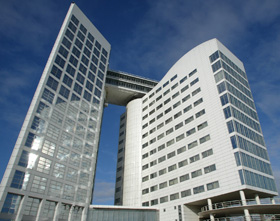Yesterday, the Report of the “Expert Initiative on Promoting Effectiveness at the International Criminal Court” was officially launched at an event at The Hague Institute for Global Justice.
The Report was prepared by a group of experts in the field of international criminal law (practitioners and law professors) over a period of eighteen months.
It was supported by the Federal Ministry of Foreign Affairs of Switzerland and made possible by the assistance of the Embassy of Switzerland in The Hague (The Netherlands) and the University of Amsterdam (UvA).
The Report contains an in-depth expert evaluation of the work and performance of the Court in a number of areas of activity relevant to the fulfillment of its mandate. Based on this evaluation and where pressing issues were identified, the Report recommends practical solutions that could be incorporated into the current practices of the Court to better its performance both in the short and long run. The Report provides recommendation not only to the organs of the Court but also to the States Parties and the ASP.
Over the past decade, the Court has methodically built reality into the promises contained in its Statute. It has tried and tested its own procedures, produced an impressive body of jurisprudence and started to create a place for itself in a highly complex political and diplomatic environment. In so doing, the Court has solidified the idea of international criminal justice.
Where the Court has been less successful is in the manner in which justice has been delivered. In other words, the Court has been performing less effectively than it should have been. Problems of “effectiveness” are understood for the purpose of the Report as those affecting the prompt, competent and economical delivery of justice.
The raison d’être of the paper was to identify, from the point of view primarily of practitioners, the principal problems of effectiveness affecting the work of the Court with a view to offer practical and realistic solutions intended to improve upon the quality, cost and expeditiousness of ICC proceedings.
The study was also intended to serve a spurring function by moving the debate over the performance of the ICC to a place where shortcomings affecting the Court are called by their name and where fresh ideas and possible solutions are being discussed openly and candidly amongst all stakeholders to try to resolve those challenges.
The difficulties affecting the Court’s effective fulfillment of its mandate are of different types. The present paper has focused on those thought to have the greatest prejudicial effect on the ability of the Court to operate at the level expected of a permanent international criminal court. These primary areas of concern have been identified by clusters as follows:
- Investigations at the ICC;
- The Confirmation Process;
- Disclosure at the ICC;
- Presentation and Admission of Evidence;
- Interlocutory Appeals;
- Orality;
- Victim’s Participation before the ICC;
- Defence before the ICC and Issues of Effectiveness;
- Institution Building and Administration;
- Cooperation and Witness Protection.
The ICC is facing great internal and external challenges of the sort that other international criminal tribunals have had to confront over the course of their own existence. Ignoring or remaining silent about those difficulties contributes to the perpetuation of these problems and the weakening of the Court’s standing and reputation. Shortcomings identified in the way the Court functions should therefore be publicised, not to embarrass the Court, but to start the process of dealing with those and ultimately to improve upon the Court’s performance.

